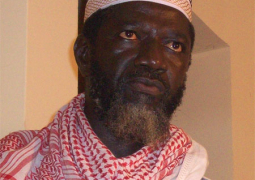Capital punishment is a very controversial issue debated avidly in a lot of nations around the world with opinions varying, some extreme, others moderate. Many arguments have been launched pro and against the enforcement of it, sparking my interest. Capital punishment is the killing of a person by judicial process as a punishment for an offense. Crimes that can result in a death penalty are known as capital crimes or capital offences. The term capital is originally connected with a Latin capitalis, literally "regarding the head". Hence, a capital crime was originally one punished by the severing of the head.
Capital punishment has in the past been practiced in virtually every society, although currently this is not the case with over half the number that originally practiced it, abolishing it. It is a matter of active discussions in various countries and states, and positions can vary within a single political ideology or cultural region.
Today, most countries are considered by Amnesty International as abolitionist. Amnesty International allowed a vote on a nonbinding resolution to the UN to promote the abolition of the death penalty However, over 60% of the world’s population live in countries where executions take place, insofar as the four most populous countries in the world (the People’s Republic of
Execution of criminals and political opponents has been used by nearly all societies - both to punish crime and to suppress political dissent. In most places that practice capital punishment it is reserved for murder, espionage, treason, or as part of military justice. In some countries sexual crimes, such as rape, adultery, incest and sodomy, carry the death penalty, as do religious crimes such as apostasy in Islamic nations (the formal renunciation of the state religion). In many countries that use the death penalty, drug trafficking is also a capital offense. In
Advocates of the death penalty argue that it deters crime, is a good tool for police and prosecutors (in plea bargaining for example), improves the community by making sure that convicted criminals do not offend again, provides closure to surviving victims or loved ones, and is a just penalty for their crime. Opponents of capital punishment argue that it has led to the execution of wrongfully convicted, that it discriminates against minorities and the poor, that it does not deter criminals more than life imprisonment, that it encourages a "culture of violence", that it is more expensive than life imprisonment, and that it violates human rights.
In some nations, the electric chair and the gas chamber were introduced as more humane alternatives to hanging, but have been almost entirely superseded by lethal injection, which in turn has been criticized as being too painful. Nevertheless, some countries still employ slow hanging methods, beheading by sword and even stoning, although the latter is rarely employed.
In the
In 1977, the United Nations General Assembly affirmed in a formal resolution that throughout the world, it is desirable to "progressively restrict the number of offenses for which the death penalty might be imposed, with a view to the desirability of abolishing this punishment". (42)
The latest country to abolish the death penalty for all crimes was
Since World War II there has been a trend toward abolishing the death penalty. In 1977, 16 countries were abolitionist. According to information published by Amnesty International in 2010, 95 countries had abolished capital punishment altogether, 9 had done so for all offences except under special circumstances, and 35 had not used it for at least 10 years or were under a moratorium. The other 58 retained the death penalty in active use. (46)
According to Amnesty International, at least 714 executions were known to have been carried out in 18 countries in 2009. In addition, there are countries which do not publish information on the use of capital punishment, most significantly
Murder is inexcusable, period but having said that nothing is black and white. There are grey areas too .By all means an offender should be punished But killing them in turn has never nor will it ever be the answer and contrary to popular opinion, it does not effect closure. Now is the time for us to put aside all violence and unite in love. Violence begets more violence, a vicious cycle indeed.


